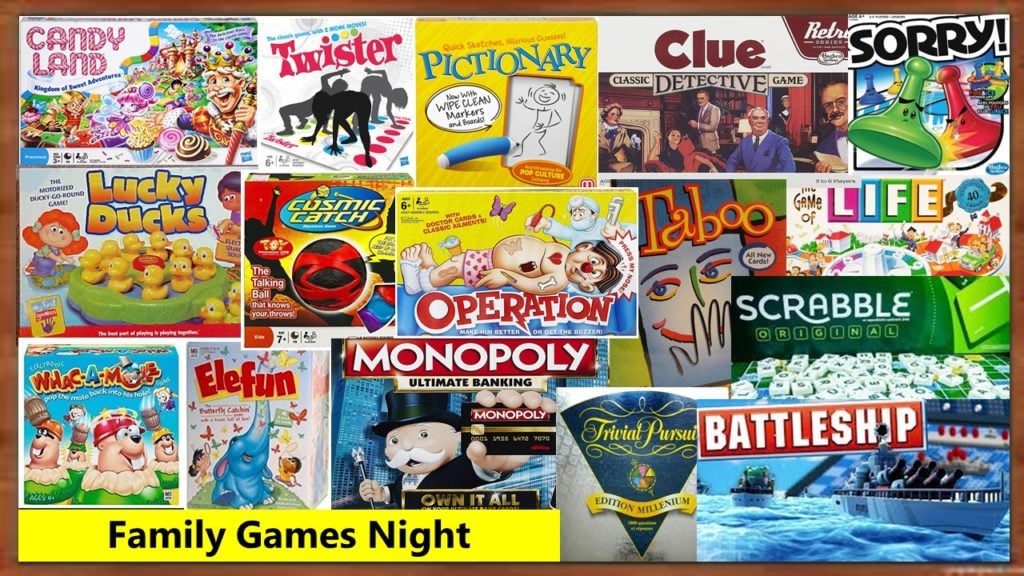
New and used board and card games are wonderful learning tools that reinforce many areas of a curriculum while children are having fun. Games can be divided into many categories depending on their objectives and methods of play. For older students, games that offer scenarios are often the most entertaining, while younger children enjoy fast-paced and interactive games.
Different games can help youngsters work on skills in areas such as fine motor skills, critical thinking, math, reading, and peer relations. Playing games can foster relationships between parents and children during their formative years, hence a push for the reintroduction of “Family Game Night” by Hasbro.
How to start a family game night
There are many easy ways to start a family game night or, for homeschoolers, a homeschool game day. Here are some easy tips:
- Set aside a block of time that remains the same from week to week.
- If the children are of many different ages, split the group by age. Alternatively, play one more straightforward game for the youngsters and then one more advanced game pairing younger children with older ones or parents.
- There should be an understood list of game day/night rules, including rules on good sportsmanship and helping others.
- Families should also plan to start game day/night early enough to avoid cranky kids or the need to stop before games are finished. Try setting a time limit for longer games such as Monopoly.
.
Games for children aged 3 to 6
There are many recommendations for games for a young skill set. In particular, these games are bright, fast-paced, and often take no more than a few minutes to play a single round. Some games recommended by Hasbro are:
- Candyland
- Luckyducks
- Elefun
- Whac-A-Mole
.
Games for children aged 6 to 8
According to Hasbro, children in the six- to eight-year-old range can understand more complex rules and are often interested in games that are more challenging than those for the three- to six-year-old category. This age group enjoys physically active games and games with simple scenarios. Some games recommended for this age group are:
- Twister
- Battleships
- Cosmic Catch
- Operation
.
Games for children aged 8 and over
Though children at the young end of this age group may need some help or coaching from their mom or dad or older children, most of them are capable and willing to play games rated 8-adult. Children in this category begin to feel comfortable with their knowledge and abilities and are eager to show off their talents. The competitive nature of children becomes evident in this age range; therefore, games often incorporate a sense of competition. Some games recommended for this age group are:
- Monopoly
- Life
- Clue
- Sorry
- Scrabble
- Pictionary
- Taboo
- Trivial Pursuit
.
Overall, the most important part of any family game night or homeschool game day is having fun. Remember, children do not have to sit at the kitchen table eight hours a day working in workbooks and studying lectures to learn. Learning can be fun!
.
Edublox offers cognitive training and live online tutoring to students with dyslexia, dysgraphia, dyscalculia, and other learning disabilities. Our students are in the United States, Canada, Australia, and elsewhere. Book a free consultation to discuss your child’s learning needs.

